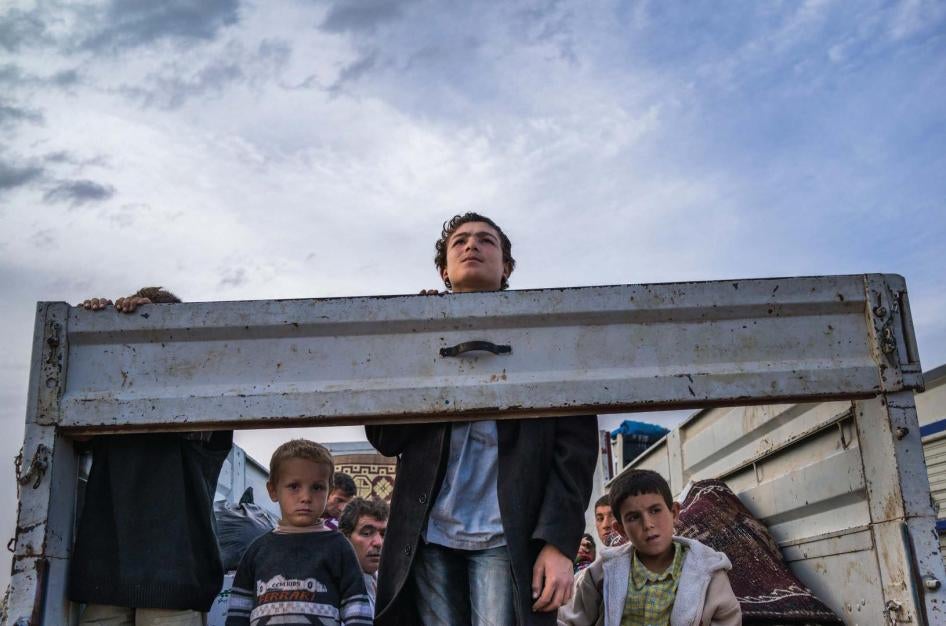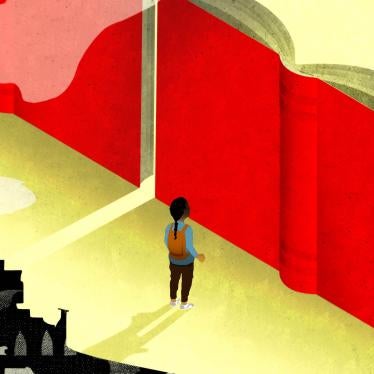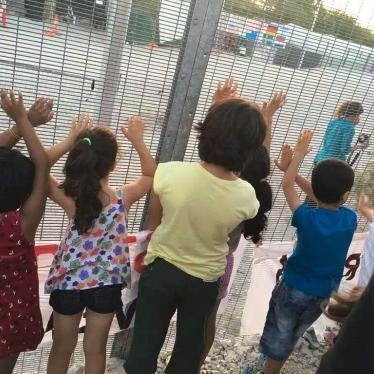“If I went back there, I imagine a dark future,” said 16-year-old Ahmad, an Afghan refugee raised in Iran who had fled to Europe. “I just want to have a chance to continue my education, nothing more.”
Not only could Ahmad not fathom returning to Afghanistan, but he also didn’t want to return to Iran, where he could not go to school. Iranian government policies require Afghan refugees to pay school fees and show residency documents to be admitted to school. The United Nations refugee agency estimates there are 1.5 to 2 million undocumented Afghans in Iran.
Ahmad is one of millions of children who have fled their homes only to face challenges getting an education in host countries. The refugee agency estimates that 50 percent of primary school-age and 75 percent of secondary school-age refugees are out of school.
International law ensures all children the same right to primary and secondary education, free from discrimination. But the reality is very far from this.
When children flee their homes, they often haven’t been able to attend school due to fighting or systemic barriers to education, such as discriminatory policies. Once in a new place, many cannot automatically go to school. Some governments have policies or laws that prevent migrant and displaced children from going to school.
In refugee camps, there may be very little or no educational services. Migrant children may be routinely detained in immigration detention, which is contrary to international standards. While detained, they often have no access to formal education.
Once in school, migrant children often experience stigma and discrimination in class. They can get lost in oversized classes, or be taught in a language they do not understand. Children with disabilities, who are most likely to be out of school, often lack vital support or basic accessibility.
Education is crucial to help children recover from the horrors they have faced, and essential for their development and their future. Governments should not adhere to policies that isolate or discriminate against children who have migrated to their countries.
Instead, governments should make the future of migrant and displaced children everywhere a little brighter by changing problematic laws and policies, investing resources in inclusive classrooms, and working with humanitarian agencies and donors to ensure all children can receive an education.










